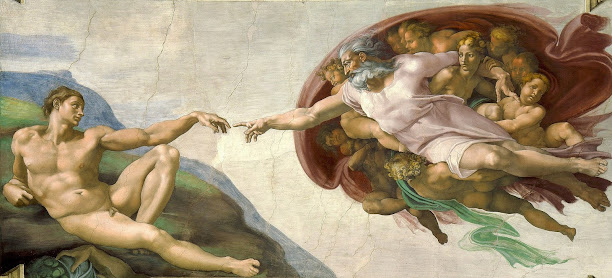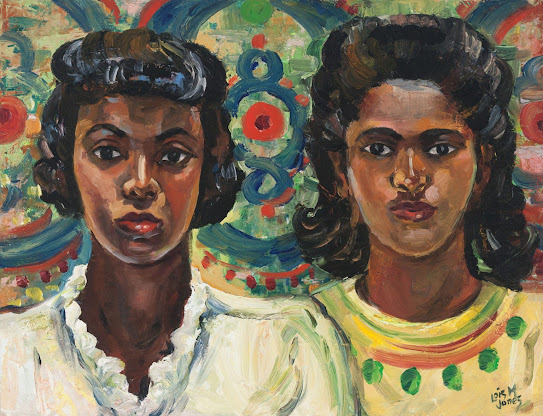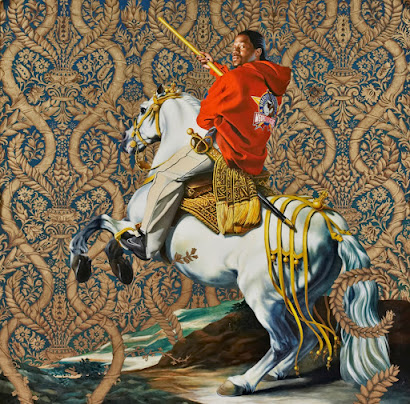Clarissa's Opinion on Mental Health Professionals
Throughout
Mrs. Dalloway, the so-called mental health professionals of the time are
portrayed in a very negative light. Septimus abhors Dr. Holmes, referring to him
as “Human Nature” which Septimus views as inherently evil. Dr. Holmes, despite
his assumption that he knows best, does nothing to help Septimus and instead
further pushes him over the edge. Sir William Bradshaw, though more helpful
than Holmes considering he actually believes Septimus is mentally ill, also
ultimately makes matters worse by attempting to force Septimus to live away
from Lucrezia. Woolf makes it explicit that the added stress of these looming
doctors that ignore the feelings of their patient is part of what drives Septimus
to commit suicide, suggesting a deep contempt of the doctors Woolf encountered
in her own life.
After finishing the novel, I am
curious whether Clarissa may have had personal experience with mental health
professionals. When Clarissa sees Richard talking with Bradshaw at her party, a
feeling of discomfort creeps over her. She thinks to herself that, though
Bradshaw is “a man absolutely at the head of his profession”, one “wouldn’t
like Sir William to see one unhappy”, suggesting that Clarissa would not trust
Bradshaw to properly handle someone’s mental health issues. She then describes Bradshaw
as “obscurely evil” and thinks “they make life intolerable, men like that”. I
think that “men like that” refers to mental health professionals.
We never read about Clarissa having any
firsthand interactions with a mental health professional, so why is she so
quick to condemn them? Clarissa clearly experiences some level of discontentment
in her life, but never admits to it, demonstrating that she is not completely
open about her feelings even with herself. She might find the idea of someone
else probing her thoughts incredibly uncomfortable, thus triggering her
reaction to Bradshaw. I think that there is enough evidence in the book to
suggest this is the case, however I also have a more interesting, albeit hard to
prove, theory. Early in the book, Peter Walsh briefly mentions Clarissa’s
sister Sylvia who was killed by a falling tree. According to Peter, Clarissa
called Sylvia “the most gifted of them” and speculated her sister’s premature
death was the reason for her staunch atheism, suggesting that Sylvia’s death
deeply affected her. Since this is the only point in the novel that mentions
Sylvia, we are left with very little information about her passing. However, I
think the fact that we never read about Sylvia from Clarissa’s perspective, despite
her passing being such a big life event, suggests that it is a topic too
painful for Clarissa to think about. Perhaps after her sister’s death, Clarissa
or someone in her family sought help with coping from a doctor and received no
legitimate treatment, much like Septimus, instilling in her a negative opinion
of mental health professionals.
Or maybe it isn’t that deep, and Virginia
Woolf just wanted the main character of her novel to dislike Bradshaw to further
draw attention to her negative representation of mental health professionals.
Also, I just though I'd add that I did some research and found that Virginia Woolf had a half sister named
Stella who died when Woolf was 15, which I thought was interesting and probably
the reason this detail about Clarissa having a dead sister was even put in the
novel.




First of all, can I just say that I love how you put paintings in all your blog posts? Your selections of art are superb and I appreciate them so much.
ReplyDeleteI think your theory about Clarissa and Sylvia is really interesting! I remember wondering what kind of trauma Clarissa carries from Sylvia's death when we first read about it from Peter's POV, but it slipped my mind until now. It's absolutely plausible, but I agree that it's hard to prove.
I also found it quite interesting that Clarissa seemed to understand Septimus on a few different accounts, both in terms of deeply relating to his suicide and the feelings preceding, and to his dislike of mental health professionals. I think this may be connected to the way that Clarissa and Septimus might be the characters most personally relatable to Woolf, and as her own feelings about mental health professionals were probably very strong, that may be the reason that she wrote that trait in for both of those characters in her novel.
ReplyDeleteSort of tying this back to Virginia Woolf herself, we know that she struggled with a variety of mental health problems herself and could definitely be projecting her own thoughts on mental health professionals onto the characters. I absolutely agree with you on that point. I think it's a major reason why Clarissa is written to feel that way. I also agree that there are many similarities between Clarissa and Septimus, but how and why exactly gets a little fuzzy, just like you said.
ReplyDeleteI agree that it is likely that Clarissa has prior experience with mental health "professionals". She does show a blatant dislike for Bradshaw, and I think that this is one of the few, more subtle narratives presented to us by Virginia Woolf. Clarissa seems to have always been a pretty well off woman, and it is likely that her family would have hired a therapist after the death of her sister. It's easy to say that she would have developed her outlook towards these "professionals" then. She seems, through her thoughts at the end of the book alone, to have at one point contemplated suicide. This connects her to Septimus, except Clarissa, obviously, never went through with anything.
ReplyDeleteSomething about Bradshaw really irritates Clarissa, and you're right that she immediately imagines herself as one of his patients: this definitely suggests some prior experience with "doctors like him," if she is able to generalize in this way. It also initiates her mysterious identification with Septimus, as here she imagines herself feeling persecuted as a patient of Bradshaw (as Septimus does), and in a few minutes she will be visualizing his final moments from his perspective.
ReplyDelete